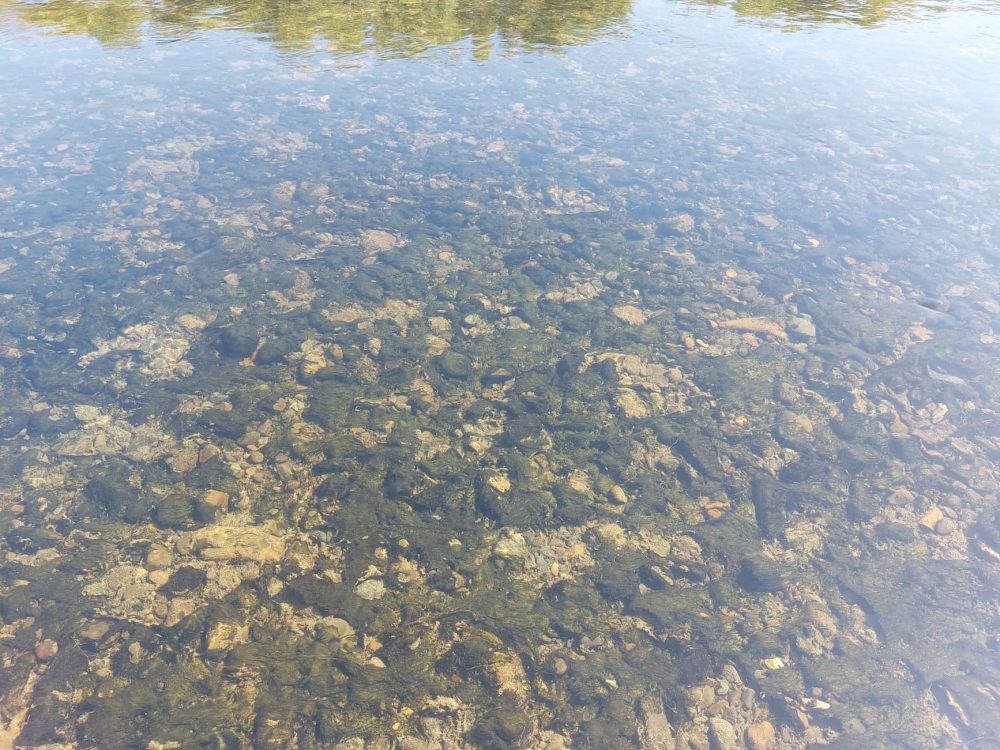Environment Southland’s latest monitoring has found high levels of potentially toxic algae in the Mataura River at the Mataura Island Bridge.
Water users should be vigilant and avoid contact with water and the algae, and swimming in the Mataura River near Mataura township should be avoided.
Similar growth may be occurring in other rivers and tributaries, so waterway users are advised to also be vigilant across Murihiku-Southland.
Algae occur naturally in waterways and can flourish during fine conditions and periods of stable river flows. Most algae are harmless, however, some cyanobacteria can produce toxins and rapidly bloom to high levels.
These algae are potentially toxic and can be commonly identified in waterways as a dark green/brown slime on rocks, or dark brown/black mats at the water’s edge.
The toxins these algae can produce are harmful to people and animals if swallowed, or through contact with skin.
People should keep dogs on a lead and children away from affected waterways. The public is urged to be mindful of the potential health risks waterways with toxic algae alerts may pose, until health warnings are removed.
If you experience health symptoms after contact with contaminated water, visit a doctor immediately. If you are concerned that any animals have consumed toxic algae or contaminated water, they should be taken to a vet immediately.
For fishers in the area we recommend:
- you to wear clothing such as waders to minimise contact with the water
- wash your hands and any other skin that’s been in contact with the river with clean water and soap. Use of hand sanitiser may not remove all the algae from the skin, so clean, running water is best for washing hands and skin.
- avoid eating the liver and other organs, as this is where the accumulation of toxins may be greatest.
Fish caught in water with toxic algal blooms should only be eaten occasionally (less than one meal per week). Fish may taste earthy due to other compounds produced by the toxic algae; there is no relationship with taste and the concentration of toxins.
Environment Southland monitors toxic algae monthly at a number of rivers and lakes across Murihiku-Southland.

